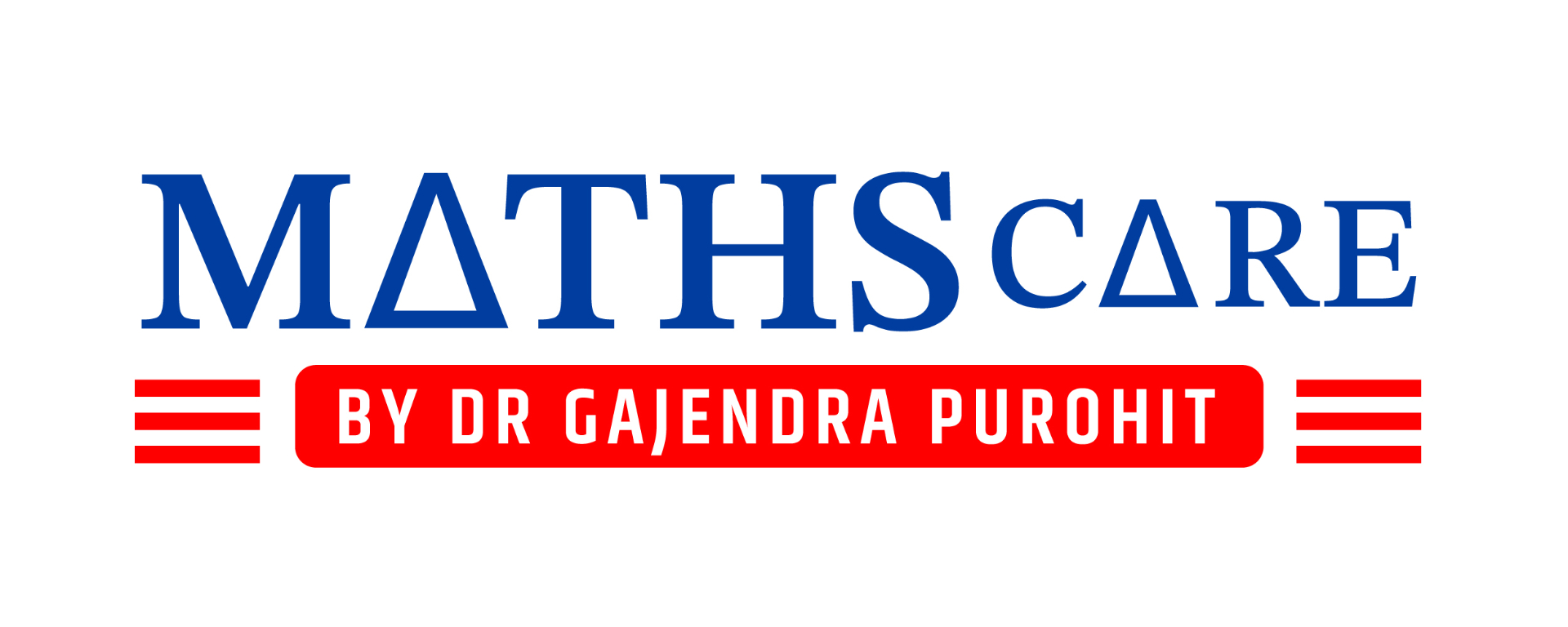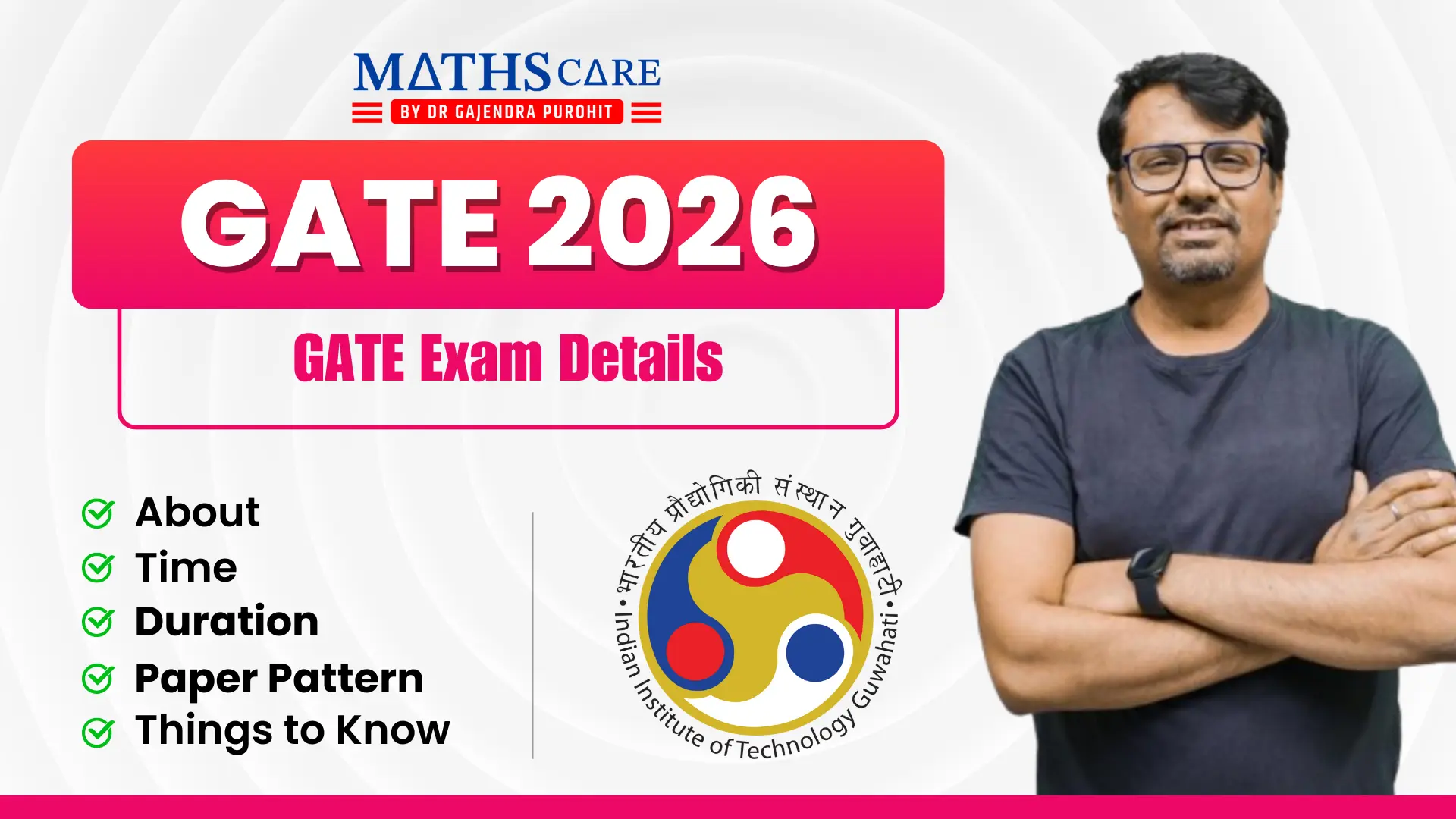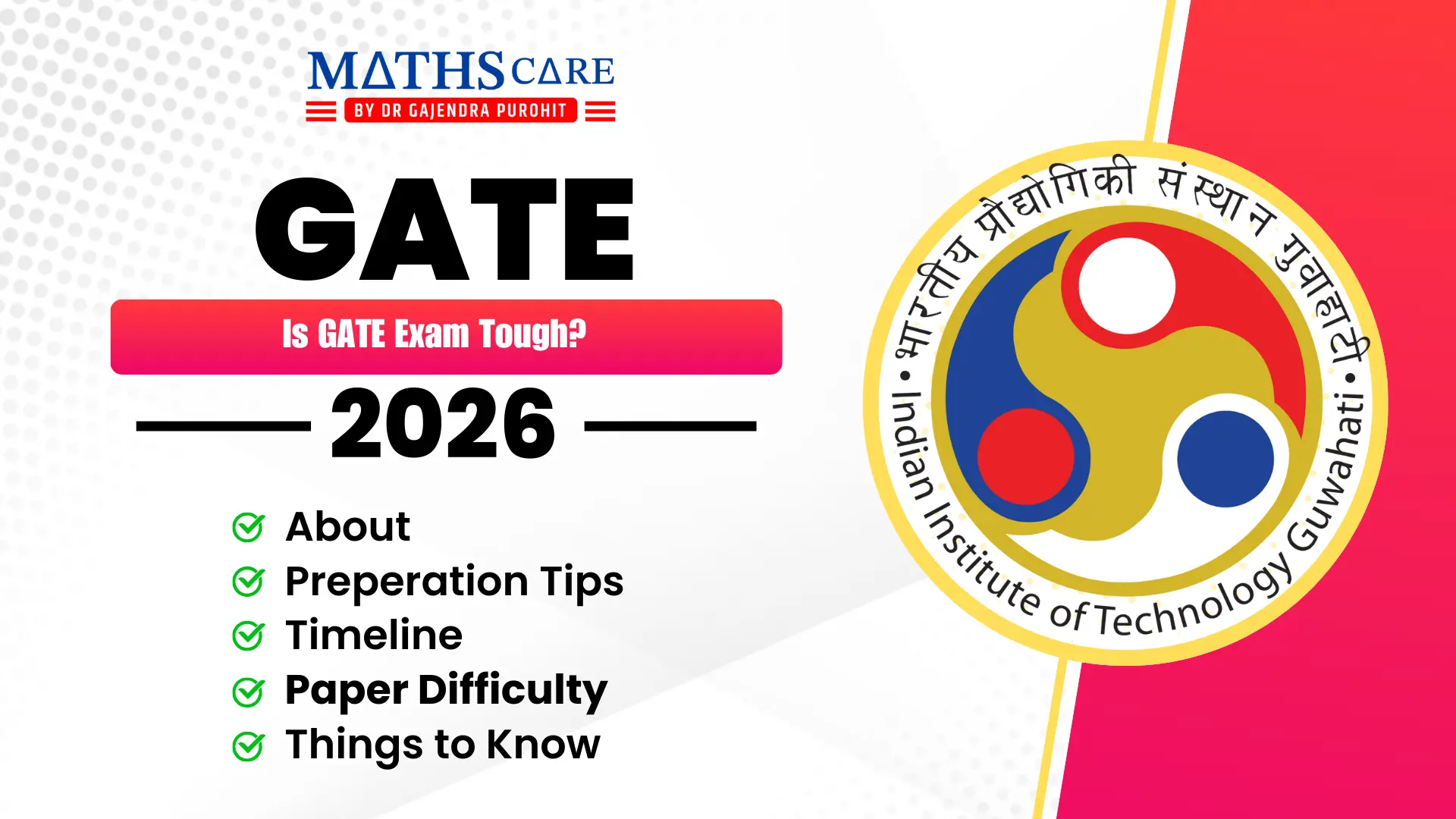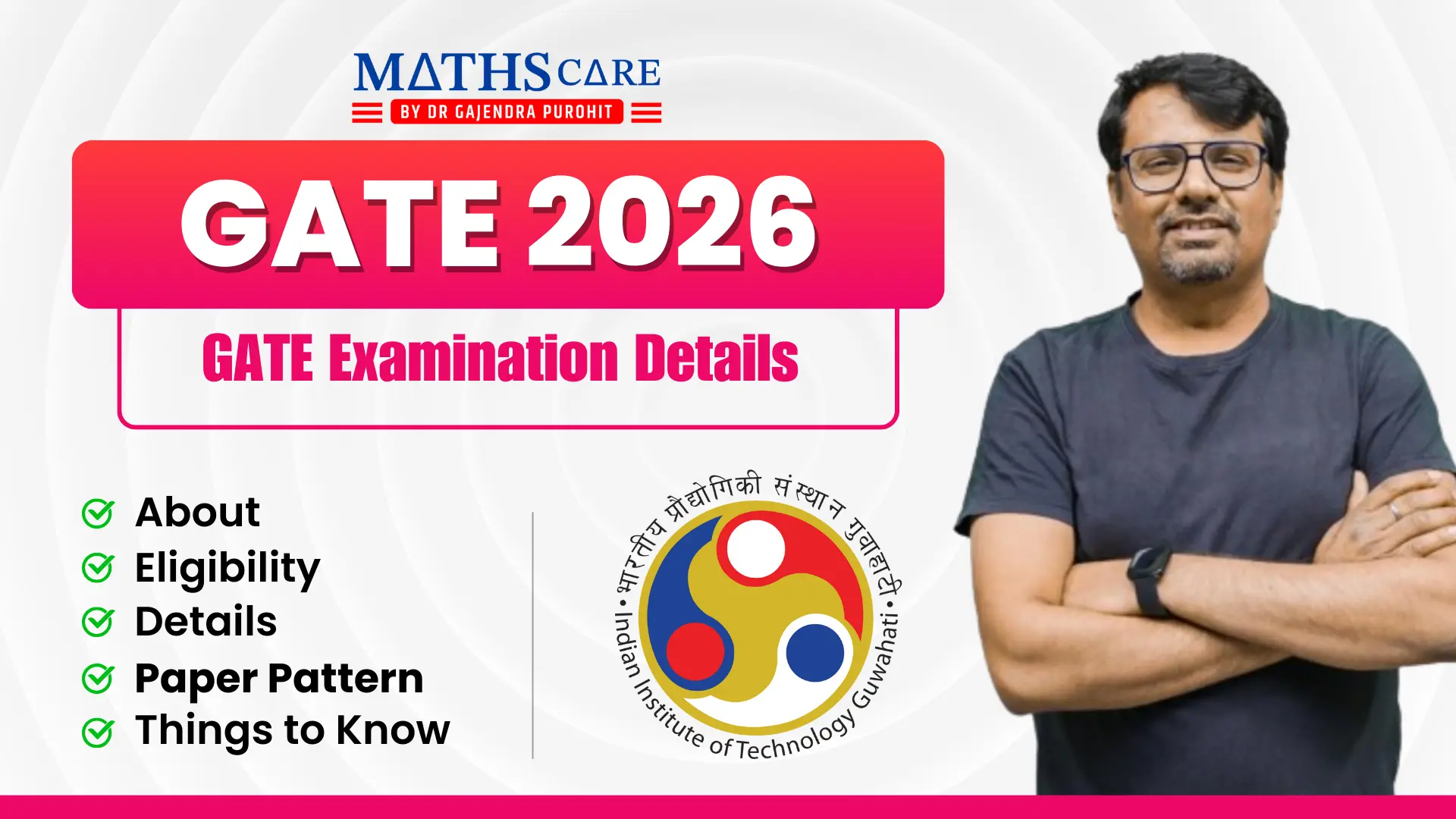GATE 2026 Preparation for Working Professionals: Syllabus & Study Tips
GATE (Graduate Aptitude Test in Engineering): Preparing for GATE 2026 while maintaining a full-time job is no small feat. It demands not just discipline and determination, but also a highly efficient and realistic approach. As a working professional, your time is limited, your energy is stretched, and your priorities are split—but your goals remain just as ambitious. Whether you’re targeting higher education, PSU recruitment, or a transition to a more technical or research-focused career path, this blog will serve as a comprehensive roadmap for your GATE preparation journey. With insights into common challenges, smart study planning, and syllabus-focused strategies, you’ll find everything you need to get started—and keep going.
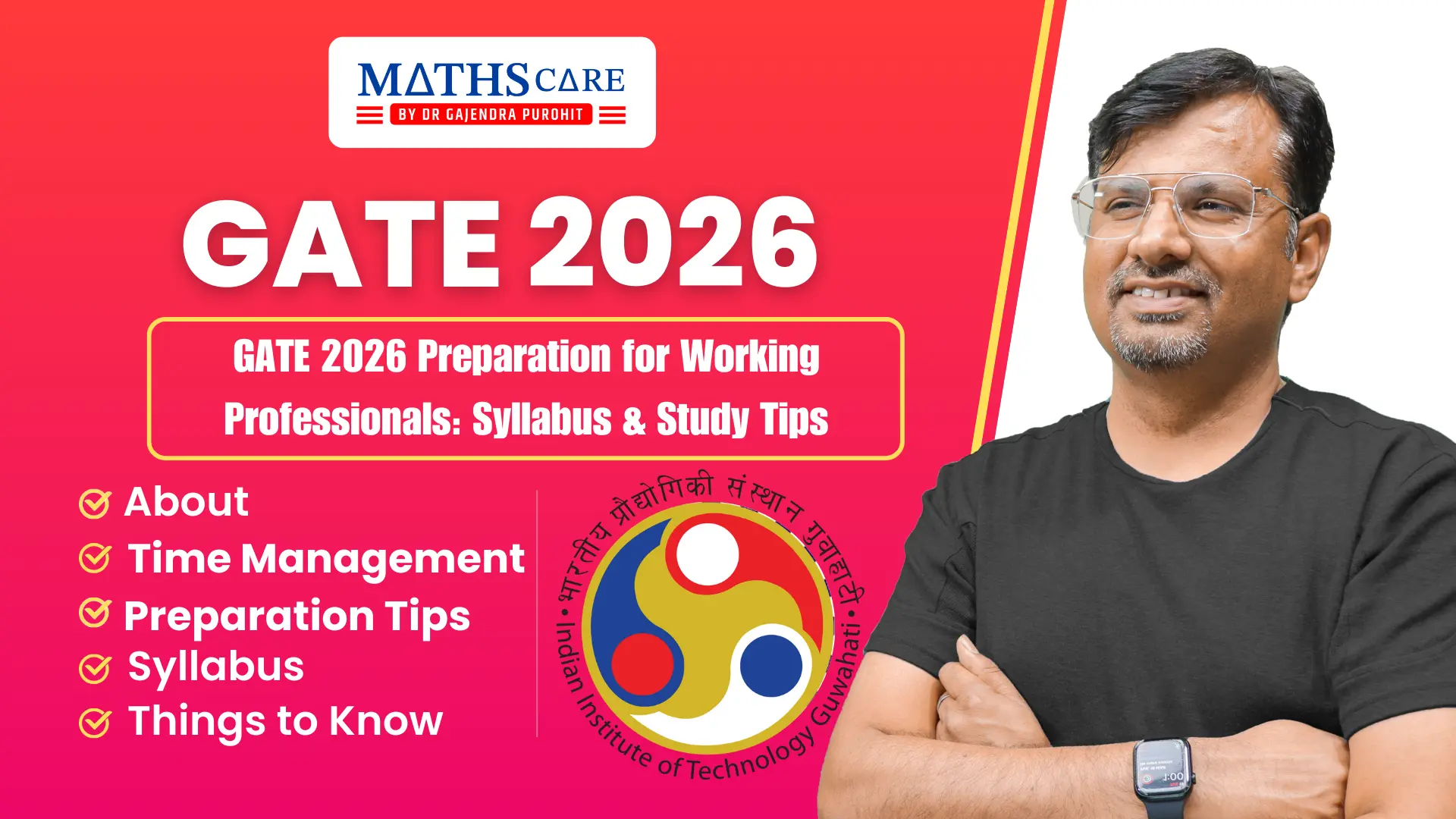
Why GATE for Working Professionals?
You may already be in a job that pays the bills—but you’re also probably seeking growth, specialization, or a long-term career shift. GATE offers precisely that. Qualifying GATE opens doors to premier M.Tech and Ph.D. programs in IITs, IISc, and NITs, which can dramatically enhance your academic and professional profile.
Moreover, GATE scores are used by several top Public Sector Undertakings (PSUs) such as ONGC, IOCL, HPCL, NTPC, and BHEL for direct recruitment. For professionals looking to move abroad, GATE is also accepted for master’s programs in select foreign universities like the National University of Singapore (NUS) and Technical University of Munich (TUM). It’s a benchmark of technical competence that stays relevant across academic and industry ecosystems.
Common Challenges Faced by Working Candidates
GATE preparation for working professionals is fundamentally different from that of students, primarily because of external responsibilities and internal time limitations. Here’s what makes it harder—and how to tackle it:
Limited Time Availability: You can’t study for 6–8 hours a day like a full-time student. Even finding 2 hours consistently can be tough. The solution? Focused, high-impact study slots and efficient topic selection.
Mental and Physical Fatigue: After an 8- or 9-hour workday, it’s not easy to sit down and solve ODEs or debug a systems concept. Opt for lighter tasks post-work and leave heavier topics for weekends.
Inconsistent Schedules: Shift-based work, unexpected meetings, and personal obligations make a rigid study timetable hard to follow. Flexible weekly planning works better than strict daily planning.
Academic Gaps: Many professionals have been out of touch with core subjects for years. Begin by brushing up the fundamentals through videos or bridge courses before jumping into complex problem-solving.
Smart Time Management Strategy
The most important asset a working professional has is consistency—not time. Even 1.5 to 2 hours of well-utilized time per day can make a massive difference over 6–8 months.
Daily Goals: Dedicate an hour post-work for one core topic and 30 minutes for revision or question practice. Use mobile apps to practice 5–10 MCQs while commuting.
Weekly Reviews: At the end of each week, assess your study progress. Are you hitting your targets? If not, identify the bottlenecks—time waste, unclear topics, or mental fatigue.
Weekend Blocks: Use weekends for heavy-duty learning. Target 3-hour uninterrupted slots for mock tests and concept revisions. Avoid overloading weekends; two strong sessions per day are better than five scattered ones.
Energy-Based Planning: Align hard topics with your mental freshness. If mornings work better, study before work hours. If evenings are more productive, reserve tougher concepts for that time.
Syllabus Prioritization for Professionals
When time is scarce, knowing what not to study is just as important as knowing what to study. Here’s how to approach the GATE syllabus:
General Aptitude and Engineering Mathematics: These two sections are common across all papers and collectively carry 30 marks. Since they’re easier to prepare and have predictable patterns, schedule weekly practice sessions.
Subject Prioritization: Analyze the last 5–10 years of GATE papers in your discipline. Identify 2–3 subjects that frequently carry higher weightage and prioritize them early in your plan.
Strength-Based Selection: Start with subjects you are comfortable with. It builds confidence and speeds up syllabus completion.
Strategic Skipping: It’s okay to skip a low-weightage, difficult topic if time doesn’t permit. Focus on scoring areas to maximize your output.
Create a syllabus tracker or printable roadmap that categorizes topics into high-priority, medium-priority, and low-priority sections.
Best Study Resources for Working Professionals
Your resources should work for your schedule, not add more stress. Here’s what to choose:
Flexible Online Courses: Look for recorded video lectures from trusted educators that you can watch at your own pace.
Mobile Learning Apps: Great for on-the-go practice. Use them for quizzes, flashcards, and topic summaries.
Core Books (One per Subject): Stick to a single trusted book per subject. Jumping between multiple sources wastes time.
Test Series with Analytics: Pick test series that provide detailed feedback—time per question, accuracy, strength areas.
YouTube Channels: Follow a handful of subject-wise educators who provide focused GATE content.
Avoid subscribing to too many platforms. Keep your resource list short, reliable, and high-yield.
If you’re looking for a single platform that combines all these benefits under one roof, MathsCare is your one-stop destination for GATE preparation. From structured video lectures and curated test series to expert mentorship and doubt-solving communities, MathsCare is designed to support working professionals with flexible, high-impact learning solutions.
Study Plan Example (Weekday + Weekend Combo)
Here’s a sample schedule for someone working 9–6:
Monday to Friday:
7:00–8:00 AM or 8:00–9:00 PM: One topic + summary notes
30 minutes: Solve 15 practice questions from the same topic
Saturday:
10:00 AM–1:00 PM: Cover one new subject/topic
3:00–5:00 PM: Attempt a sectional or mock test
6:00–7:00 PM: Analyze test results, log mistakes, and revise
Sunday:
Morning: Practice General Aptitude and Mathematics (2 hours)
Afternoon: Watch recorded lectures or revise tough topics
Evening: Light quiz, concept recall, or relaxation (important!)
The key is to maintain balance—ensure your study schedule doesn’t become another source of burnout.
Revision and Practice Tips
Weekly Revision Cycles: Revisit topics you studied in the last 7 days. Repetition cements memory and builds retention.
Quick Notes: Maintain a formula sheet or short notes that you can carry around. Use them during commute or breaks.
Mark Important Questions: Flag questions you got wrong in mock tests and revisit them every 2–3 weeks.
Test Simulation: At least once a month, attempt a full-length mock in exam conditions. It builds mental stamina and exam temperament.
Community and Peer Support
Studying alone as a working professional can feel isolating. Join a Telegram group, Reddit thread, or local peer circle where working aspirants share resources and motivate each other. Some platforms offer weekend doubt-clearing sessions exclusively for working candidates.
Discuss: Sharing doubts helps faster problem resolution.
Motivate: Seeing others balance work and study builds mental strength.
Network: You may find future colleagues, lab mates, or study partners.
Conclusion
Cracking GATE 2026 as a working professional is about resilience, strategy, and smart preparation. You don’t need to study more—you need to study better. With structured time blocks, prioritized syllabus coverage, the right resources, and consistent practice, you can absolutely achieve your GATE goals. Start now, stay steady, and let each day of preparation bring you closer to that breakthrough moment when your scorecard reflects your effort and ambition.
GATE FAQS
Admit cards will be available for download in January 2025.
GATE scores are valid for three years from the date of result announcement.
Yes, but only during the correction window, and you may need to provide supporting documents.
Upload the side of your ID showing your photo, name, date of birth, and ID number.
Yes, but you must upload an affidavit with your photo ID.
BEST OFFERING COURSES FOR YOU
BEST BOOKS FOR IIT JAM/ CSIR-NET
BUY BOOKS ON OUR APP
RECENT POSTS
